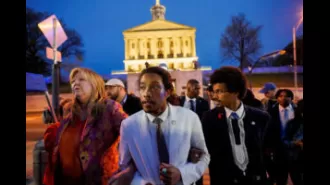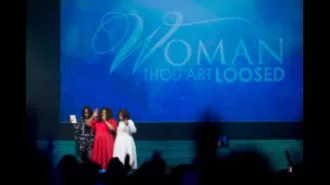Black people need historically Black colleges and universities more than ever in the absence of Affirmative Action.
HBCUs can create a more fair and diverse society through higher education.
July 20th 2023.

In the wake of the Supreme Court's June 29th ruling, which effectively prohibits the consideration of race in higher education admissions, a wave of dissent has been unleashed. President Biden expressed his deep disappointment, calling the 6-3 decision a "profound setback".
Observers have noted the ruling's detrimental effect on diversity within higher education institutions nationwide, and its imposition of barriers on deserving students aiming for higher learning. Universities and colleges across the country are reassessing their admissions processes, while some maintain their commitment to holistic assessments in admission decisions.
Amidst the justified outrage and widespread critique, it is essential to recognize the implication of the SCOTUS ruling for historically Black colleges and universities. These esteemed institutions have long served as a witness to the discrimination faced by Black students in predominantly white colleges and universities, regardless of their exceptional qualifications.
Former President Donald Trump, a self-proclaimed “genius” and conservative champion, could not resist patting himself on the back for his role in stacking the court with conservative justices, while celebrating the SCOTUS ruling. With his typical lack of subtlety, he said, “This week, those justices ruled to move our country forward with a merit-based system of education.” The implication behind the phrase “taking your place” is nothing other than a thinly veiled reference to individuals from the Black community.
This ruling presents a remarkable opportunity for HBCUs to swagger into a new and transformative future if they play their cards right. Several HBCU presidents expressed their concern, noting the value of diverse backgrounds in enriching the academic environment, the chilling effect this ruling has on college matriculation for people of color, and its hindering of access for students of color.
Morehouse College's president, David Thomas, called the decision a “travesty” with potentially enduring negative effects, including a significant reduction in the black student population at elite colleges. It is important to acknowledge the contrasting admissions practices between HBCUs and PWIs, and how this ruling has the potential to affect them differently.
In the wake of the Supreme Court ruling on June 29th, prohibiting the consideration of race in higher education admissions, the tide of dissent was expected. President Biden was quick to express his deep disappointment in the 6-3 decision, calling it a profound setback.
Numerous observers have gone on to remark upon the ruling's adverse impact on diversity within higher education, as well as its detrimental implications for students hoping for higher learning. As universities and colleges reassess their admissions processes, some are still steadfast in their commitment to holistic assessments of applicants.
Amidst the justified outrage and widespread critique, it is important to recognize the implications of this ruling for Historically Black Colleges and Universities (HBCUs). These institutions have long been aware of the icy reception Black students receive in predominantly white institutions, regardless of their credentials.
Former President Donald Trump, ever the self-congratulatory champion of conservative policies, couldn't resist patting himself on the back for his role in stacking the court with conservative justices. With his typical lack of subtlety, he remarked on the “merit-based system” that the ruling would bring forward. He said, “If you’re a worker and you work very hard in school, you got fantastic marks, somebody that hasn’t done nearly as well who perhaps has not worked nearly as hard will not be taking your place.”
The phrase “taking your place” is a thinly veiled reference to individuals from the Black community. This raises the question: do opponents of affirmative action possess the ability to discern the qualifications of Black students based solely on their skin color? It is likely a rhetorical question, but it is important to note that Trump is the same man who falsely claimed to have attended the Wharton School of Business.
Rather than dwelling on the past, this ruling presents an opportunity for HBCUs to step into a transformative future if they play their cards right. Following the court's decision, several HBCU presidents expressed concern. Morgan State University's president, David K. Wilson, asserted that the ruling would disregard the value of diverse backgrounds in enriching the academic environment.
Delaware State University's president, Tony Allen, described the decision as having a chilling effect on college matriculation for people of color, and being harmful to society. Howard University's communication office stated that the ruling would have a devastating impact on diversity in higher education, limiting access for students of color.
Spelman College's president, Helene Gayle, expressed deep disappointment, emphasizing the reversal of progress, the loss of equal access, and the importance of diversity for democracy. Morehouse College's president, David Thomas, called the decision a “travesty” with potentially enduring negative effects.
It is important to note the contrasting admissions practices between HBCUs and Predominantly White Institutions (PWIs). This pivotal moment in history will certainly shape the future of higher education.
Observers have noted the ruling's detrimental effect on diversity within higher education institutions nationwide, and its imposition of barriers on deserving students aiming for higher learning. Universities and colleges across the country are reassessing their admissions processes, while some maintain their commitment to holistic assessments in admission decisions.
Amidst the justified outrage and widespread critique, it is essential to recognize the implication of the SCOTUS ruling for historically Black colleges and universities. These esteemed institutions have long served as a witness to the discrimination faced by Black students in predominantly white colleges and universities, regardless of their exceptional qualifications.
Former President Donald Trump, a self-proclaimed “genius” and conservative champion, could not resist patting himself on the back for his role in stacking the court with conservative justices, while celebrating the SCOTUS ruling. With his typical lack of subtlety, he said, “This week, those justices ruled to move our country forward with a merit-based system of education.” The implication behind the phrase “taking your place” is nothing other than a thinly veiled reference to individuals from the Black community.
This ruling presents a remarkable opportunity for HBCUs to swagger into a new and transformative future if they play their cards right. Several HBCU presidents expressed their concern, noting the value of diverse backgrounds in enriching the academic environment, the chilling effect this ruling has on college matriculation for people of color, and its hindering of access for students of color.
Morehouse College's president, David Thomas, called the decision a “travesty” with potentially enduring negative effects, including a significant reduction in the black student population at elite colleges. It is important to acknowledge the contrasting admissions practices between HBCUs and PWIs, and how this ruling has the potential to affect them differently.
In the wake of the Supreme Court ruling on June 29th, prohibiting the consideration of race in higher education admissions, the tide of dissent was expected. President Biden was quick to express his deep disappointment in the 6-3 decision, calling it a profound setback.
Numerous observers have gone on to remark upon the ruling's adverse impact on diversity within higher education, as well as its detrimental implications for students hoping for higher learning. As universities and colleges reassess their admissions processes, some are still steadfast in their commitment to holistic assessments of applicants.
Amidst the justified outrage and widespread critique, it is important to recognize the implications of this ruling for Historically Black Colleges and Universities (HBCUs). These institutions have long been aware of the icy reception Black students receive in predominantly white institutions, regardless of their credentials.
Former President Donald Trump, ever the self-congratulatory champion of conservative policies, couldn't resist patting himself on the back for his role in stacking the court with conservative justices. With his typical lack of subtlety, he remarked on the “merit-based system” that the ruling would bring forward. He said, “If you’re a worker and you work very hard in school, you got fantastic marks, somebody that hasn’t done nearly as well who perhaps has not worked nearly as hard will not be taking your place.”
The phrase “taking your place” is a thinly veiled reference to individuals from the Black community. This raises the question: do opponents of affirmative action possess the ability to discern the qualifications of Black students based solely on their skin color? It is likely a rhetorical question, but it is important to note that Trump is the same man who falsely claimed to have attended the Wharton School of Business.
Rather than dwelling on the past, this ruling presents an opportunity for HBCUs to step into a transformative future if they play their cards right. Following the court's decision, several HBCU presidents expressed concern. Morgan State University's president, David K. Wilson, asserted that the ruling would disregard the value of diverse backgrounds in enriching the academic environment.
Delaware State University's president, Tony Allen, described the decision as having a chilling effect on college matriculation for people of color, and being harmful to society. Howard University's communication office stated that the ruling would have a devastating impact on diversity in higher education, limiting access for students of color.
Spelman College's president, Helene Gayle, expressed deep disappointment, emphasizing the reversal of progress, the loss of equal access, and the importance of diversity for democracy. Morehouse College's president, David Thomas, called the decision a “travesty” with potentially enduring negative effects.
It is important to note the contrasting admissions practices between HBCUs and Predominantly White Institutions (PWIs). This pivotal moment in history will certainly shape the future of higher education.
[This article has been trending online recently and has been generated with AI. Your feed is customized.]
[Generative AI is experimental.]
0
0
Submit Comment





